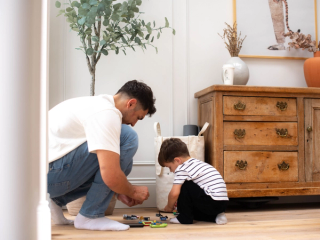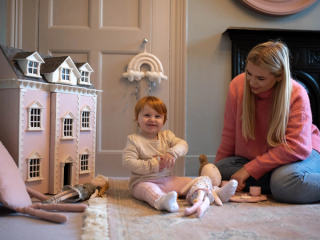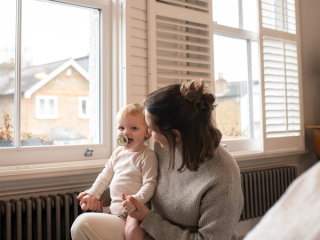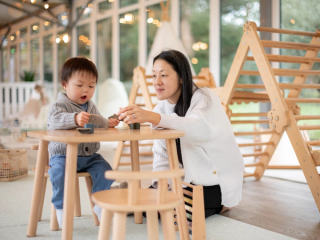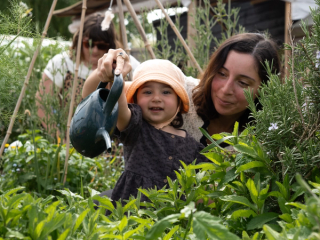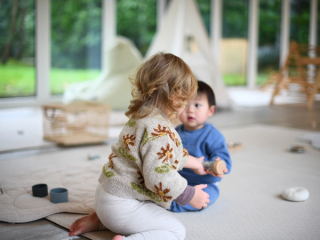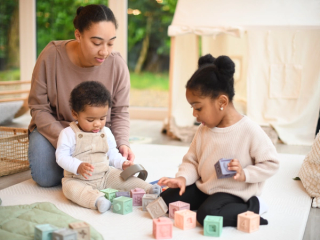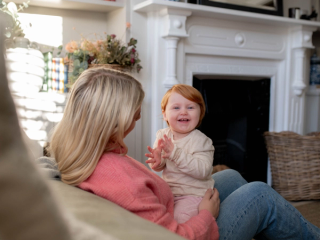
- Home
- Advice Hub
- Toddler
- Toddler Milestones
- How Does Screen Time Affect Speech And Language Development?
How does screen time affect speech and language development?
Let's delve into this important topic and explore how we can navigate screen time effectively to support healthy communication skills in infants.
In today's digital age, screen time—time spent in front of televisions, smartphones, tablets, or computers—is a pervasive aspect of daily life, even for our youngest children.
As a Speech and Language Therapist, I often encounter questions from parents about the impact of children’s screen time on their speech and language development. Let's delve into this important topic and explore how we can navigate screen time effectively to support healthy communication skills in infants.
What is screen time?
Screen time encompasses any period spent engaging with electronic devices that display visual content. For infants and toddlers, this can range from watching television shows and videos to interactive games on tablets or smartphones.
Can screen time cause speech and language delays?
Research suggests that excessive screen time, particularly of the wrong kind, can indeed be detrimental to speech, language, and communication development in young children. When infants spend too much time passively viewing screens, they miss out on crucial opportunities for play and responsive interaction, which are essential for language acquisition and social-emotional development.
Moreover, prolonged screen time can contribute to physical health issues such as obesity and have a negative impact mental wellbeing. However, screens are integral to the adult world, and when used appropriately and in moderation, they can offer benefits such as social connection and technological familiarity.
How to make the most of screen time
It's crucial to adopt strategies to limit and optimise screen time for infants:
- Be Mindful of Your Own Usage: Children often imitate the behaviour of adults. Setting a positive example by managing your own screen time can encourage healthy habits.
- Watch Together: Co-viewing content with your child promotes interaction and discussion, which enhances their learning experience.
- Talk About It Later: Interacting with your child about the screen time content again later in the day (e.g. during play or mealtime discussions) can help consolidate their learning of new vocabulary and ideas.
- Choose Age-Appropriate Content: Opt for high-quality, age-appropriate programmes or apps that align with your child's developmental stage.
- Limiting Screen Time: According to the World Health Organization (WHO), children aged 0-2 years should have no screen time, while 3-4-year-olds should have no more than an hour per day.
However, it's essential to recognise that not all screen time is equal. Interactive experiences like video calls with family members can offer unique benefits compared to passive screen consumption.
Key questions to ask about screen time
Before granting your child screen time, consider:
- Safety: Is the content appropriate and safe for my child?
- Age-Appropriateness: Does the activity or content align with my child's developmental stage?
- Participation: Can my child actively engage with the content?
- Interaction: Will someone respond to my child's cues and interests during screen time?
Large amounts of screen time can influence your child’s language development, but its impact will vary based on the content and interactive opportunities presented. While screen time should not replace meaningful interactions with your child, it can be one part of a rich, varied 'play diet' that is vital for healthy development.
By adopting a balanced approach and being intentional about screen time choices, we can empower our children to navigate the digital landscape while prioritising their speech and language development.
Advice & tips

Want to read more? Join the HiPP BabyClub for full access to this article.
As a BabyClub member, you'll get access to a range of exclusive benefits, including:
Monthly competitions
Discounts from our Partners
Expert advice tailored to your little one's age
Weaning recipes
HiPP shop discounts*
*10% off HiPP's online shop does not apply to our First Infant, Anti-Reflux or Comfort Formula Milk.
Important notice: Breastfeeding is best. Follow on milk should only be used as part of a mixed diet from 6 months. Talk to a healthcare professional.





